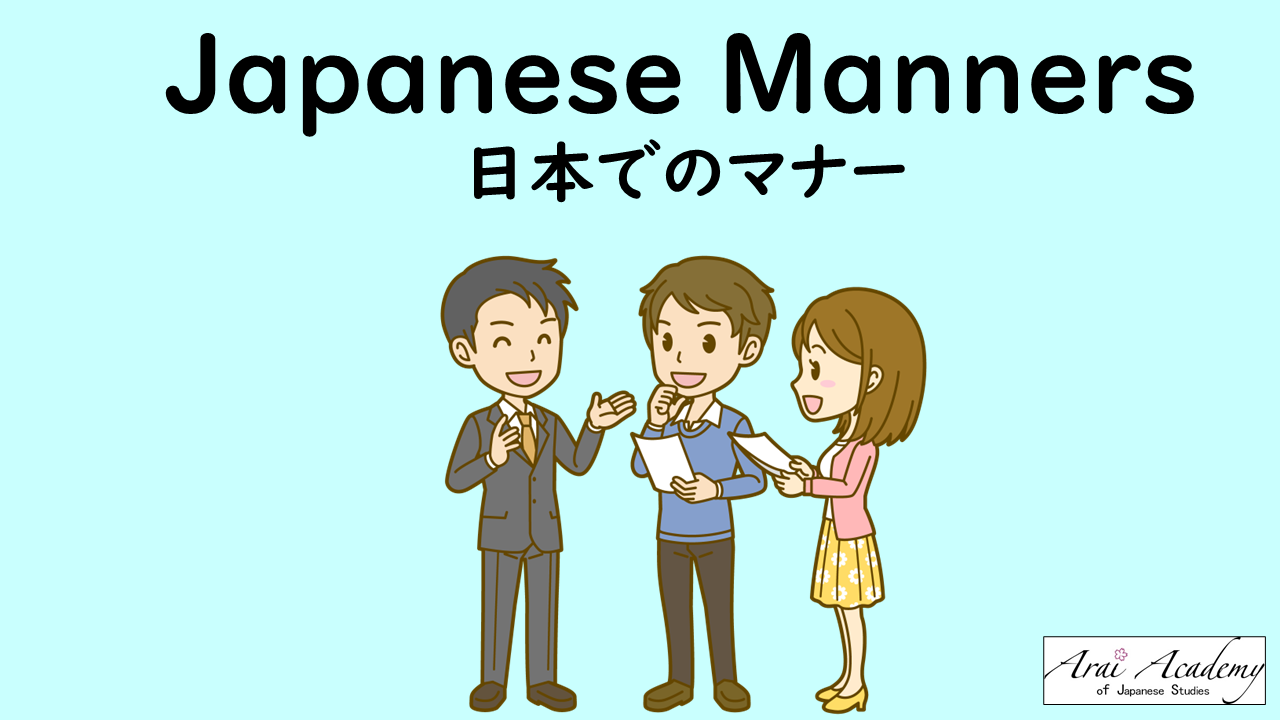Japanese Manners – Can you believe the top 2 examples?
Nov 11, 2022
Hi. Are you interested in Japanese manners? Based on the 3 crucial cultural points from the past article, I’ll introduce the top 2 useful situations. At the end of the article, you can check your current knowledge on the ‘Can Do List’.
みなさん、こんにちは。日本のマナーについて興味がありますか。前回の記事で「日本人に好印象を与えるポイント3つ」を紹介しました。今回はよくあるシチュエーションを2つ紹介します。最後にチェックリストで自分がなにができているかチェックしてみてください。
You might feel ‘I could have avoided it if I knew these Japanese ways of thinking…’ So, I hope reading the cases will be helpful for you. Have you encountered one of the cases below?
日本人の考え方を「知っていたら避けられた、、」ということばかりですので、損をしないように読んでみてください。このような経験はありませんか。
By the way, you can check the 3 crucial cultural points from this link.
以前の「日本人に好印象を与えるポイント3つ」の記事はこちらのリンクからご覧ください。
<Situation 1シチュエーション1>
My boss approached me when I was working at my desk. He started talking to me and I stopped doing my task and responded while sitting at my desk.
会社のデスクで座って仕事をしていたら、上司が近くに来た。上司が自分に話しかけてきたので、仕事の手を止めて座ったまま会話をした。
Q:What is the problem here?何が問題だと思いますか。
A:Your boss is standing but you are sitting. In this case, you should stand up in order to have the same eye level and it looks lazy and rude to speak while sitting. In addition, it is better for you to greet him first if it’s the first contact with him on the day.「上司が立っていて、自分が座っている」という状況に注目すると、ここは立って目線を合わせて話をする必要があります。また、上司に対して自分から「あいさつ」をすることも大切ですし、座ったまま「おじぎ」をするのも失礼です。
You might have thought it was better to keep the lower position as you learned positioning in status at a Japanese polite expression lesson. But this is not the case.敬語のレッスンなどで相手を上に、自分を下にと習うので、このケースのように自分が低いほうがいいと思うのかも知れません。
This is courtesy for Japanese people and you can create strong relationships by following it. Therefore, they see you are not educated. So, please stand up to respond when your boss is standing.
これが「礼儀」であり、日本人にとって礼儀は信頼関係のためにとても大切なことです。つまり、座ったまま話を聞く人は「礼儀を知らない」と思われますので、信頼を得るためには立って対応するようにしましょう。
<Situation 2 シチュエーション2>
It is very cold in winter in Japan. I always put on a coat when I visit my client. The inside of their office is not warm enough and I keep my coat on until I arrive in the meeting room.
日本では冬寒いので取引先に行くとき、いつもコートを着る。取引先の会社に着いても中は寒いので会議室に入るまではコートを着たままでいる。
Q:What is the problem here? 何が問題だと思いますか。
A:In Japan, you normally take off your coat before entering a client’s office. There are two reasons. One is to keep the same outfit as your client. Inside, they do not wear a coat and neither do you.日本では取引先の建物に入る前にコートを脱ぎます。理由は2つあって、一つは相手がスーツ姿でコートを着ていないので、同じようにコートを脱いでスーツ姿で会うというのが礼儀となっています。
The second reason is the Japanese mentality of separating inside and outside. We consider the outside is not as clean as the inside and it is better to take off the top which was exposed to the virus and dust. Therefore, it is better to do so when you visit your friend’s place.
二つ目の理由としては、外で誇りやウィルスなどが付着した「上着」となりますので、そのまま建物に入ってはいけないという考え方もあります。これは個人のお宅に伺う時も同じです。
However, it is very cold outside and your client and friend often suggest you to put your coat on before leaving the building. It is also important to care about a visitor and guest like this.
そうは言っても外は寒いですから、訪問された側は、お客様がお帰りになる時に、建物の中であっても「どうぞお召しになってください」と促して、コートを着ていただく「配慮」も必要です。
Of course Japanese people understand that this kind of behaviour is not familiar to you and requires some effort. And not many people think you should know all these manners in Japan.
このような振る舞いを外国人がするということは努力が必要だということは日本人はよく理解しています。日本のビジネスマナーを知っているのが「当たり前だ」と思う人は少ないです。
After all, they totally appreciate your attitude to learn manners and do it. And surely, you will make a great impression!
ですから、みなさんがこのビジネスマナーを学ぼうという努力に感謝の気持ちを持っています。そんな頑張っているみなさんを見て、日本人が持つみなさんに対する印象もまたさらに良くなります。
If you want to check your current knowledge, please check the Can Do List.
今、自分がどの程度できているかチェックしたい方はこのCan Do Listをクリックしてチェックしてみてください。
We would keep supporting your further learning for your dreams.
ぜひ、私たちもそんな皆さんの頑張りを応援します。
「輝いて」Enrich your life!
Mineko Arai
Managing Director
Mariko Yamamoto
Business Japanese Professional Teacher
Arai Academy of Japanese Studies
Succeed in Japanese!
Q: Have you ever learnt how to study Japanese effectively?
Q: Do you feel like you're making progress?
Join our mailing list to receive FREE 'Tips for Achievement!'
We hate SPAM. We will never sell your information, for any reason.




